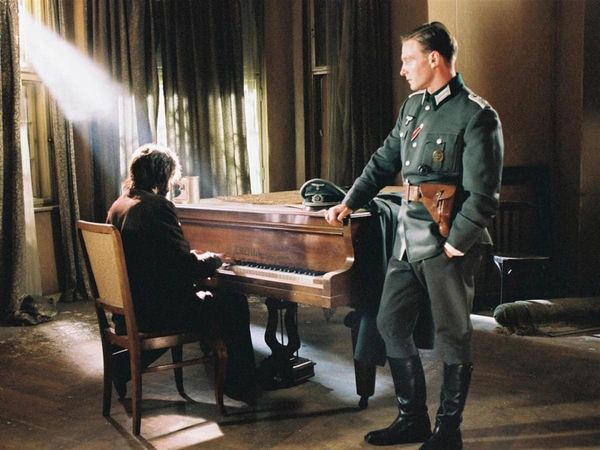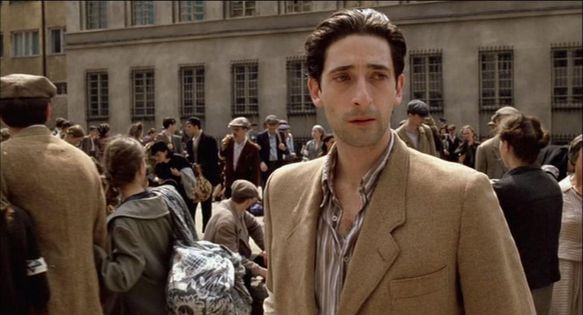The Pianist (2002)

Introduction
Released in 2002, The Pianist, directed by Roman Polanski, is a poignant film that tells the true story of Polish-Jewish pianist Władysław Szpilman, portrayed by Adrien Brody. Set against the backdrop of World War II, the film explores themes of survival, the fragility of life, and the profound impact of music.
Plot Overview
The Pianist follows Szpilman as he navigates the horrors of the Holocaust. The film begins with his life as a celebrated musician in Warsaw, filled with hope and dreams. However, as the Nazi regime rises to power, Szpilman and his family face increasing persecution. The harrowing depiction of the Warsaw Ghetto’s establishment and the subsequent loss of his family highlights the devastating effects of war on human lives.
As Szpilman becomes separated from his family and forced into hiding, the film delves into his struggle for survival. Alone and desperate, he witnesses the brutality of the Nazi occupation, yet he clings to his passion for music as a source of hope and solace. His encounters with both kindness and cruelty showcase the complexities of human nature during one of history’s darkest times.

Themes and Significance
- Survival and Resilience: At its core, The Pianist is a testament to the human spirit’s resilience. Szpilman’s journey embodies the struggle to survive against insurmountable odds. His determination to live, despite overwhelming despair, serves as a powerful reminder of the strength that individuals can find in their darkest moments.
- The Role of Music: Music is a central motif in the film, symbolizing beauty and humanity amid chaos. Szpilman’s piano performances offer moments of respite and emotional connection, highlighting the power of art to transcend suffering. The film underscores how music can be both a refuge and a means of resistance.
- The Complexity of Humanity: Polanski masterfully portrays the moral dilemmas faced by individuals during wartime. The interactions between Szpilman and those around him reflect the spectrum of human behavior—compassion, betrayal, and indifference. This complexity invites viewers to reflect on the choices made in times of crisis.

Conclusion
The Pianist is not just a film about the Holocaust; it is a deeply moving exploration of survival, the enduring power of art, and the resilience of the human spirit. Through Władysław Szpilman’s story, the film reminds us of the importance of empathy and compassion, urging viewers to remember the past and the lessons it imparts. Its haunting imagery and evocative score leave a lasting impact, making The Pianist a significant cinematic achievement that resonates with audiences around the world.











